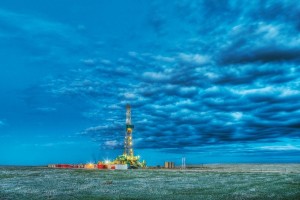This semester my civic issue blogs have focused on fracking and alternative energy sources. I have learned a great deal about fracking and I hope people reading my blogs learnt something too. Throughout my blogs I have discussed the benefits of fracking and how it became a large domestic energy source as well as some serious environmental concerns over its use. I also incorporated some case studies of where fracking has taken place and discussed them in my last post. For my final civic issues post I decided to discuss the future of fracking, how it is likely to expand and progress, and whether the environment is likely to be further threatened by it.
Throughout my research of fracking one thing that has been hard to ignore when trying to argue against its use is the tremendously positive effect it has had on the U.S. economy and energy prices for consumers. A Harvard magazine article states, “The spot price for natural gas traded on the New York Mercantile Exchange hit a record low of $1.82 per million British thermal units (MMBTU) last April 20—down 86 percent from a high of $12.69 in June 2008.” The dramatic reduction in the cost of natural gas because of greatly increased production helps lower energy bills for industrial and home consumption. Given the current economic situation these cheaper costs are even more helpful to consumers in the United States. The use of fracking has expanded greatly and there is still potential for a lot of further expansion, and it is likely to do just that since there has been such a clear economic benefit.
While writing these blogs I think it is important to explain how fracking can be seen as a “bridge fuel”. This was actually how President Obama described it when he talked about the recent growth of fracking. So while fracking is not a clean or renewable energy source it produces a lot less pollution than burning coal and we have seen a reduction in U.S. carbon emissions because of this. Fracking can definitely be a step towards cleaner energy sources but it is still important to not become dependent on natural gas and instead just use it to give us more time to develop sustainable energy sources that are not yet able to produce the energy we need. Also a Washington post article describes how if we’re going to meet our climate goals the bridge will need to be short and there are still some other concerns present. For example I spoke in my earlier blogs about pipelines leaking methane into the atmosphere which is a serious pollutant. Furthermore there is a theory that cheap gas will hinder alternative energy because it will not be able to compete price wise.
In conclusion I do not think fracking is a bad thing as it has done a lot to improve our economy, domestic production of energy and currently reduced carbon emissions. It is set to expand further and I think it should be allowed to do so but we can’t become dependent on natural gas thus we need to continue to invest in renewable energy. Some regulations should be established, especially regarding methane leakage. Pipelines need to be held to a certain standard to control leakages and some other regulations should be established to protect nearby communities to fracking sites. With this in place I believe fracking can expand in a safe and beneficial way.


Although people seem to believe that it poses very detrimental long term effects, those effects have yet to be completely proven and we go on fracking anyway. In one of my courses here at Penn State, I learned about biofueld and alternatives to the fossil fuels that we use today. This includes biodiesel, gasohol, and E-85, which are three very useful alternatives to regular gasoline. The fact that the United States is finding and succeeding in using alternatives to fossil fuels as energy sources will potentially reduce human effects on the environment. The same goes for fracking as well.
I think it’s really interesting that you mentioned fracking as a “bridge fuel.” I had never heard the term before but it is very true that this method of fuel is only meant to be temporary and transition us to ultimately be less reliant on fossil fuels.
This was a really interesting civic blog to read and I am glad to have been able to. You have a lot of research and your writing style is extremely interesting to read.
I have learned a lot and even though fracking seems to be quite a problem, I do agree that it is probably a step towards cleaner fuels.
–K.E. Van Develde